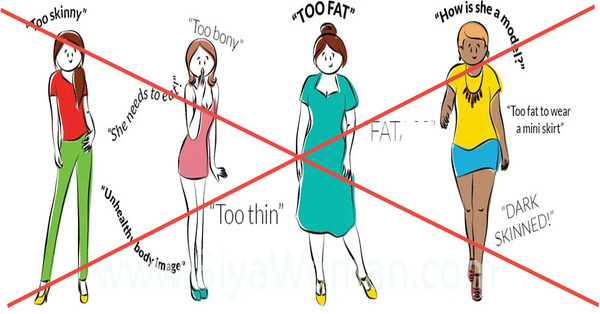In the bustling city of Lagos, a battle is being waged over the issue of decency. Whilst it’s said that body policing and infringement on individual freedom anastomosed to erupt a controversy on an aspect of Lagosian lives. Some argued that these laws are a necessary means of protecting societal values.
The government has argued that body-policing is necessary to uphold the moral fabric of society and prevent the spread of “immoral” behavior. However, critics have pointed out that these laws are often selectively enforced and disproportionately target certain groups, such as women and members of the LGBTQ+ community. They argue that the laws infringe on personal liberties and have a chilling effect on freedom of expression.
Body shaming referring to the act of criticizing or judging people based on physical appearance, is often done in a way meant to make such feel ashamed or embarrassed, thus having negative impacts on individual’s self esteem and mental health.
Body-shaming happens behind closed doors, whereas body-policing tends to happen in public spaces. Body-shaming can be done in a one-on-one conversation or on social media, where the victim may feel isolated and alone. Body-policing, on the other hand, can occur in public spaces like restaurants, stores, or on the street, where bystanders may witness the incident and feel compelled to intervene. Often motivated by individual prejudices and biases, whereas body-policing is rooted in broader societal values. Body shaming is based on unrealistic standards of beauty, where the other enforces a set of cultural norms around what’s considered ‘acceptable’.
In a professional setting, body-shaming can be seen as unprofessional and disrespectful. Most workplaces have policies that prohibit discrimination and harassment based on appearance, and body-shaming can be seen as a violation of these policies. Body-policing, on the other hand, can be justified in some professional contexts as a way to maintain a certain standard of professionalism.
The relationship between decency laws and gender equality in Lagos is complex and multifaceted. Some advocates argue that decency laws are necessary to protect women from harassment and sexual violence. On the other hand, critics argue that these laws reinforce harmful gender stereotypes and reinforce the idea that women are responsible for their own safety. They also note that these laws are often disproportionately enforced against women and girls. The enforcement of decency laws can have a negative impact on gender equality in Lagos.
In many cases, those who are most affected by these laws are women from lower socioeconomic backgrounds. They may not have the resources to challenge the laws in court or to navigate the complex legal system. Decency laws can also have a chilling effect on economic opportunities for women, as they may be excluded from certain jobs or activities due to their perceived ‘indecency.’ In this way, the relationship between decency laws and gender equality in Lagos is a complex and nuanced issue. It is not a simple case of ‘right’ and ‘wrong’, but rather a complicated web of social, economic, and cultural factors.
The increased rate of harassment and violence against women in Lagos is a complex issue, and one that cannot be attributed solely to the abolishment of decency laws. However, the absence of these laws may create a culture of impunity, where harassers and perpetrators feel that they will not be held accountable for their actions. This could lead to an increase in incidents of harassment and violence, as well as a lack of trust in the legal system to protect women’s rights.
Without decency laws in place, women who do not conform to societal norms may face greater social stigma and exclusion. Without legal protection, these women may be subject to harassment, bullying, and discrimination from their peers and the wider community. This can lead to feelings of isolation and insecurity, which can have a negative impact on their mental health and wellbeing. The absence of decency laws may also lead to a culture of fear, where women feel pressured to conform to societal norms in order to avoid negative consequences. This can stifle creativity and innovation, and limit the ability of women to fully participate in society.
The abolition of decency laws in Lagos may lead to a backlash against women’s rights, as those who oppose such laws may see it as a sign of increased ‘liberalism’ and ‘decadence’ in society. This backlash may manifest in a number of ways, such as increased pressure for women to dress and behave in a certain way, restrictions on women’s freedom of movement, and even increased violence against women. The absence of decency laws may also embolden those who hold regressive views about women’s role in society, which could have far-reaching consequences for women’s rights.
In the battle over decency laws in Lagos, it is important to remember that all people are deserving of respect and dignity, regardless of their appearance or lifestyle choices. It is not the role of the government to dictate how people should look or behave, but rather to provide the necessary support and protections to ensure that all people can live free from discrimination and violence. Only by recognizing the inherent value of all people, regardless of their differences, can we truly create a society where everyone can thrive.



